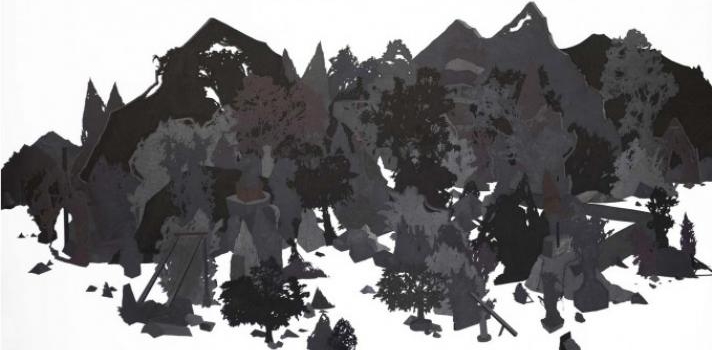The Algerian-Moroccan Tension
Prisons as a Lens of Foreign Policy
August 27, 2021

On August 24, 2021, Algerian Foreign Minister Ramadan Lamaamra declared that the country had decided to cut its diplomatic relations with Morocco. In an official statement, Lamaamra accused the neighboring country of committing “hostile actions” and claimed that Morocco has used Israel-made Pegasus spyware against Algerian officials, especially those who are involved in the Western Sahara dispute.
The Algerian decision reflects the decades of tension between the two countries over the status of their sovereignty and the situations of their border areas. The Western Sahara War which lasted for almost 16 years between 1975 and 1991, was a conflict between the Moroccan regime and the Sahrawi indigenous Polisario Front. The conflict was joined by a number of regional and international powers: while France and Mauritania sided with Morocco, Algeria supported the separatist Front. In his recent statement, Lamaamra also confirmed that "Algeria will remain firm in its positions on the issue of Western Sahara."
The treatment of Brahim Ghali, the head of the Polisario, at an Algerian hospital in June 2021 was a practical confirmation that preceded Lamaamra’s words. Before his arrival to Algeria, Ghali had been receiving treatment in Spain, where Moroccan authorities hoped he would be detained on claims of human rights abuses. However, a Spanish court ruled that it was unable to prove the Moroccan allegations that Ghali committed war crimes and abused human rights during the Western Sahara War, resulting in the Sahrawi leader being released and allowed to fly to Algeria.
While Algeria has long supported the Polisario movement, Morocco has similarly backed the Movement for the self-determination of Kabylie, a movement of Amazigh people in Algeria, known by the acronym MAK. The Movement was founded in 2001, sparked by the arrest and subsequent death in police custody of Massinissa Guermah, a Kabylie high school student. Guermah’s death led to the “Black Spring,” clashes between Algerian police forces and Kabyle activists which resulted in the death of 126 people and the injury of thousands. This past May, nearly 20 years after the “Black Spring,” Algerian authorities declared MAK a terrorist group and arrested a number of its members accusing them of planning car bombs. In response, a few months later the Moroccan ambassador to the United Nations Omar Hilalie urged the Algerian government “to apply the principle of self-determination for the Amazigh people.” Earlier this month, Algerian authorities held MAK responsible for the wildfire that ripped through the Amazigh. Without providing clear evidence, Algeria also blamed Morocco for inducing the “terrorist act” of setting the fires, which extended along the Mediterranean coast east of the capital Algiers and killed 90 people, including 33 Algerian soldiers.
The above seeks to showcase historical and recent dynamics around both internal tensions and questions of sovereignty within Morocco and Algeria respectively, and flares in the “cold” war between the two countries. The ways in which these internal and intra-country dynamics involve moves towards criminalizing and incarceration need to be unpacked and followed going forward. Additionally, the escalating tensions between the two countries must be analyzed in conjunction with the current deteriorating conditions of prisons in both Morocco and Algeria. Despite their perceived differences and diplomatic tensions, the two countries share qualities relating to ill-treatment of prisoners and the lack of basic facilities within prison.
Both the Algerian and the Moroccan regimes claim that they have the right to protect their territories and borders, and they have identified internal and external threats to such a right. A close eye must be kept on the ways in which the two regimes manage these tensions through their relevant policies and politics of incarceration: in doing so, we need to take prisons as necessary sites while investigating not only modern meanings of sovereignty and ‘legal’ use of power but also colonial systems set in place for domination of certain lands and peoples.